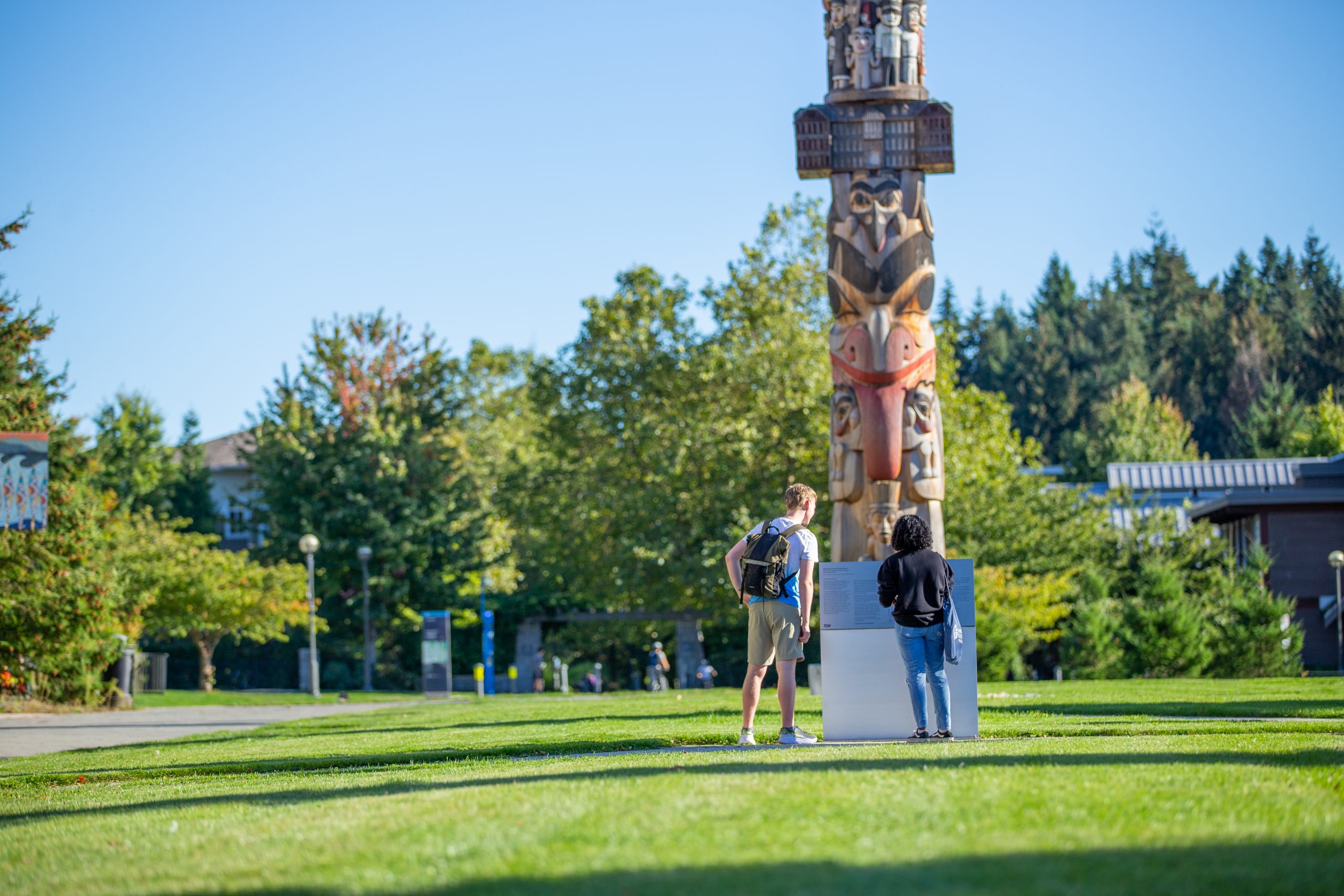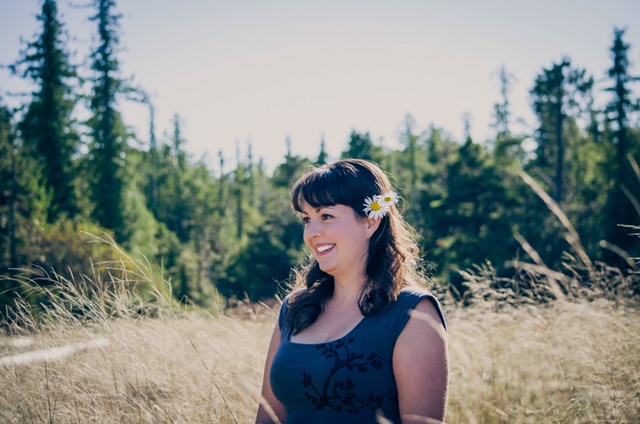
How is the Indigenous Health Administration and Leadership Program Delivered?
How is the Indigenous Health Administration and Leadership Program Delivered?
This one-year, part-time certificate program is delivered in-person and online, combining self-study with real-time online learning opportunities.
The 2023–2024 program consists of weekly online real-time classes, peer learning and group discussions. Two of the five courses include a mandatory 3-day (Thursday to Saturday) in-person residency at the UBC Vancouver campus. The final residency at the end of the program takes place Thursday to Friday and includes a community immersion experience and graduation ceremony. In addition to the instructor-facilitated classes, students complete written assignments based on readings and personal experience using an online discussion board.
Instructors create a safe, supportive and engaging in-person and online learning environment grounded in Indigenous approaches to learning. This includes circles, small group discussions, and lectures with plenty of time to learn concepts, ask questions, practice, and apply learning to your community.
Note: In order to comply with limits on social gatherings and physical distancing measures due to the COVID-19 pandemic, the Indigenous Health Administration and Leadership program may need to shift the in-person classes to online, in which case the schedule will be synchronous Zoom classes on Fridays 9:30-12pm.
Be sure to check out the IHALP schedule for residency times and week to week breakdown.
Overview of Each Course
The program comprises five courses. Course modules provide opportunities to practice critical thinking and team-building, as well as to develop oral, written and electronic communication skills for organizational and interpersonal settings. The order in which courses are offered is subject to change.
Leadership course:
- Identify your personal leadership style and create your own personal definition of leadership
- Build competencies required to facilitate change management
- Distinguish the role of Indigenous values in leadership practice for team building and problem solving
- Build competencies for effective and culturally relevant communication
Fundamentals of Administration:
- Relate Indigenous health structures, governance, complex organizations, and systems thinking to Indigenous health work
- Determine effective community engagement practices
- Implement best practices and innovation in health care planning
- Build strategic planning skills
- Identify key elements and strategies for quality improvement initiatives
- Build foundational skills for human resource management including performance reviews, employee recruitment and retention, professionalism, and code of conduct
- Identify financial and accounting considerations and build program funding and reporting skills
Evaluation, Research, and Policy
- Compare and contrast types of knowledge
- Create a plan to evaluate a program or service according to Indigenous approaches and ways of knowing
- Critique a research project, in relation to its fit for your community
- Describe the various ways that policy shows up in our lives
- Develop a draft policy for your workplace or community
- Analyze public policy and their impact on Indigenous peoples
Information Management:
- Analyze the ethical and legal issues in health management (e.g., privacy, confidentiality, data ownership)
- Analyze the benefits and pitfalls of technology from a personal, organizational and community perspective
- Assess the opportunities and benefits of implementing technology solutions in their organizations using a project management approach
- Describe the key characteristics and concepts of community Information Management
- Apply the principles of evidence informed decision-making to the planning of technology use in a community environment
Indigenous Health and Wellness:
- Address historical impacts and the social determinants of health in Indigenous health programming
- Incorporate Indigenous concepts of health and wellbeing and traditional healing approaches in health programming
- Advocate with health partners to address systemic racism
- Create culturally safe health services and programs
Meet your Instructors and Peer Mentor
Be guided by Indigenous educators and professionals who bring their education, community, and work experience into the class room
Lauren Brown, BSN, MA, from the Haida Nation
Lauren Brown, BSN, MA, from the Haida Nation is an advocate for improving Aboriginal health, and has experience in policy and program development, teaching and government relations. She has worked in various provincial organizations, including Chief’s Committee of Health and Healing Our Spirit, and in patient advocacy at BC Women’s, BC Children’s and St. Paul’s hospitals. Lauren served for seven years on the board of the First Nations Health Directors Association, and more recently on the board of the Minister’s Advisory Council on Indigenous Women.
In 2003, Lauren moved to the Haida Nation community in Skidegate, BC to assume the role of health director at Skidegate Health Center. Though challenging, this fulfilling role allows Lauren to influence positive changes in health in her community.
The proud mother of two girls, Lauren is committed to learning the Haida language, Xaayda K’il. She holds a bachelor of science in nursing from UBC and earned a Master of Arts in Leadership – Health from Royal Roads University.
Danielle Mitchel, MA, is Nehiyaw/Metis and of mixed European ancestry with connections to Muskeg Lakes nd Cree Nation and Duck Lake area within
Danielle was born, raised and continues to be a grateful guest on the unceded lands of the Halkomelem speaking peoples, including Qayqayt, xʷməθkwəy̓əm (Musqueam), Skwxwú7mesh (Squamish), and Səl ̓ ílwətaʔ/ Selilwitulh (Tsleil-Waututh) Nations.
Danielle has over 13 years of experience in the health and social services sector within Indigenous Health, Human Resources and Financial Services. Working in senior leadership, Danielle’s focus was to advance structural and systemic changes, and address anti-Indigenous racism through strategy, practice and policy. In her consultancy business, Danielle works from a rights-based Indigenous lens to uplift perspectives of Indigenous communities, knowledge systems and collective ways of being and leading. She partners with public and private organizations to strengthen their capacities and take action toward meaningful relationships and change.
Danielle completed a Master of Arts in Leadership degree from Royal Roads University (BC) and has an educational background in systems transformation, business management, human resources and project management.
To most, Danielle is known as auntie, sister, daughter, cousin and friend.
June Kaminski, BSc, MSc, has maternal blood ties to the Ketegaunseebee Anishnabai, Garden River First Nation
June Kaminski, BSc, MSc, has maternal blood ties to the Ketegaunseebee Anishnabai, Garden River First Nation, in Northern Ontario. She has taught many programs related to nursing, research, and Aboriginal health and education over the past 23 years. She recently won the Canadian Association of Schools of Nursing (CASN) Nursing Faculty e-health Award and is also the Editor-in-Chief of the Canadian Journal of Nursing Informatics. June is working towards her PhD in Curriculum and Pedagogy Studies.
Heather McDonald, BSN, MS, PhD, RN
Heather McDonald, BSN, MS, PhD, RN is a health policy and quality officer at Seabird Island Health, and has been a nurse for more than 30 years. After working in intensive care, Heather joined GF Strong as a clinical nurse specialist. While there, she became interested in how our social world influences experiences, including our experiences with chronic pain. She has researched the impacts of chronic pain, practitioner knowledge of pain management and the effectiveness of intramuscular stimulation.
In 2011, Heather completed her PhD at UBC where she studied Aboriginal health, working with local First Nations to learn about pain and arthritis. Her studies were the start of her restorative justice journey to address health in equities experienced by Canada’s Indigenous peoples.
Melanie Rivers, Tiyaltelwet, BA, PID, MPH, EXAT, is from the Squamish First Nation
Melanie Rivers (Tiyaltelwet), BA, PID, MPH, EXAT is Coast Salish from the Squamish Nation. She develops curriculum for Indigenous programming with the UBC Centre for Excellence in Indigenous Health, and is a Community Expressive Arts consultant.
Melanie has more than 20 years’ experience in the design and delivery of culturally appropriate Indigenous health education and policy at the provincial level. She was program lead and educator at the BC Centre for Disease Control Chee Mamuk program, and worked as a senior policy advisor at the First Nations Health Authority. Her areas of focus have included cultural safety and humility, harm reduction, traditional healing and wellness, strategic policy development, HIV/AIDS and health human resources.
In addition to her degrees, Melanie holds a provincial instructor’s diploma from Vancouver Community College, and trained as an Expressive Arts Therapist at the Vancouver School of Healing Arts.

Your Peer Mentor: Carolyn Belanger
Carolyn is a registered nurse from Amiskwaciwâskahikan (a.k.a Edmonton) in Treaty 6 with ancestral ties to Lac Ste. Anne Métis community in west central Alberta. She started her career in a busy, urban emergency department before venturing into the role of a Community Health Nurse in First Nations communities across western Canada. Having observed the trend of health inequity among those she served, Carolyn is pursuing a Masters of Public Health at UBC and a Certificate in Indigenous Governance at the U of A to be able to advocate for self-determination in Indigenous healthcare. She continues to incorporate Métis worldview into her practice and empowers clients to engage in holistic and traditional wellness methods to regain and maintain exceptional measures of health experienced by Indigenous people prior to contact. Her life’s passion is to support clients on their wellness journey so they may ultimately transcend to their greatest potential.
How Will I Know How I’m Doing?
Assessment criteria is developed to support Indigenous learners and reflect their ways of knowing and seeing.
- Participants are assessed according to clear guidelines to support participants in acquiring the skills and concepts taught in the program.
- Assessment is based on participation, weekly online group discussions, assignments, presentations, and projects.
- Instructors and program staff will guide your learning along the way.
What Technology Do I Need?
We recommend that you have the following technology requirements to keep up with the program and complete projects and assignments online:
- Laptop or desktop with Windows 10 or Mac OSX Sierra 10.12 or higher (we highly recommend a desktop and ethernet cable)
- Keyboard and mouse
- Speakers and a microphone – built-in, USB plug-in, or wireless Bluetooth
- A webcam or HD webcam – built-in, USB plug-in:
- Stable internet connection – broadband wired or wireless (minimum 3G or 4G/LTE)
- Familiarity with basic internet applications (email and web browser)
A week before the program start, we hold a mandatory online orientation that prepares and supports you for the program.
Please also subscribe to UBC Extended Learning News and Updates to receive new course announcements and program updates.
Related Links
Stay in the loop!
Be sure to stay in touch with us via our newsletter to get up to date news on CEIH programming, course offerings and more!